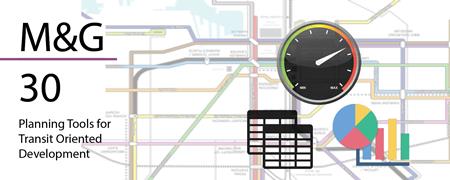 The Washington Metropolitan Area Transit Authority (WMATA) provides Maryland’s most successful example of planning for TOD. The nation’s second-busiest subway system behind the New York City Subway, Metro serves Montgomery and Prince George’s counties with 24 stations. As one of the major economic centers in the nation, the D.C. region continues to have a high demand for housing.
The Washington Metropolitan Area Transit Authority (WMATA) provides Maryland’s most successful example of planning for TOD. The nation’s second-busiest subway system behind the New York City Subway, Metro serves Montgomery and Prince George’s counties with 24 stations. As one of the major economic centers in the nation, the D.C. region continues to have a high demand for housing.
WMATA’s highly regarded joint development program has been successfully used to develop its land holdings in station areas. The program captures the value of transit investment through air right leases, station connection fees to joint development projects, and increasing ridership resulting from TOD. Much of WMATA’s success pursuing joint development is due to its in-house real estate development department. In its early days, the agency purchased land around planned rail stations at relatively low prices; later, the agency used the land for joint developments.
The agency’s joint development strategy has evolved. In 2008, the agency updated its Joint Development Policies and Guidelines to re-orient its policies to emphasize TOD and transit improvements rather than focusing solely on cash returns. In addition, the update encourages more pre-development planning and streamlining the project review process. In 2013, WMATA revised its Joint Development Policies and Guidelines again to reiterate objectives that support TOD, incorporates an affordable housing policy, and clarifies language to ensure greater transparency to developers.
Jurisdictions served by the Metro system stations – White Flint, Wheaton, Shady Grove, Prince George’s Plaza and New Carrollton –have encouraged TOD since the transit system was built. While the region’s TOD efforts can be celebrated, challenges remain in both Montgomery and Prince George’s counties to fully realize TOD potential to increase the local tax base and job opportunities and provide a full range of housing choices that attract residents who maximize the use of transit.
